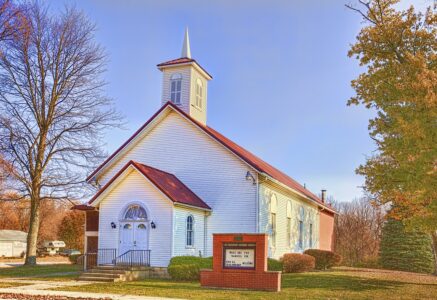
Today, the Supreme Court increased the burden on employers who receive a request to accommodate an employee’s religious beliefs. Before today, an employer was not required to provide a religious accommodation if it would impose “more than a de minimis burden” on the employer. After today, employers will be confronted with a case-by-case analysis of whether an accommodation will result in “substantial increased costs.”
In the last few years, I’ve provided a lot of advice to employers on accommodating employees’ religious beliefs. First, I received a lot of questions during COVID about employees’ religious objections to mask mandates or vaccine requirements. Second, I received many questions about accommodating Saturday Sabbath observers who cannot work from sundown Friday through Sundown Saturday.
An employee’s observance of the Sabbath on Saturday can sometimes conflict with an employer’s need to schedule work on a Saturday. As a result, I often walked my clients through the analysis of whether they were required to give time-off to Saturday Sabbath observers. After all, Title VII of the Civil Rights Act prohibits discriminating against employees because of their religious beliefs. In 2018, I wrote a blog on accommodations for Sabbath observers that can be found at: this link (Sabbath Accommodations).
Today, the United States Supreme Court disrupted almost every employment lawyer’s understanding of the analysis for accommodating religious beliefs. See Groff v. DeJoy, No. 22-174, 2023 WL 4239256 (Jun. 29, 2023). The Groff decision focused on Title VII’s requirement that an employer must “reasonably accommodate an employee’s or prospective employee’s religious observance or practice” unless the employer is “unable” to do so “without undue hardship on the conduct of the employer’s business.” 42 U.S.C. § 200oe(j)
In short, accommodation is required unless the accommodation would impose an undue hardship on the employer. Prior to today, most courts and lawyers interpreting Supreme Court precedent understood that that proving “undue hardship” was a fairly easy task. If an accommodation would require “more than a de minimis cost,” it was an undue burden.
In Groff, the Supreme Court jettisoned the “de minimis” standard and replaced it with a more-difficult burden for employers. “[A]n employer must show that the burden of granting an accommodation would result in substantial increased costs in relation to the conduct of its particular business.” Groff, 2023 WL 4239256 at *11 (emphasis added). Unfortunately, the Court provided very little guidance for applying its “substantial increased costs” tests. But, we know two things:
- There is no one-size-fits-all test. Instead, the Supreme Court encouraged lower courts to “apply the test in a manner that takes into account all relevant factors in the case at hand, including the particular accommodations at issue and their practical impact in light of the nature, ‘size and operating cost of [an] employer.'” Groff, 2023 WL 4239256 at *11. In other words, large employers will face more onerous burdens for accommodating because they should be able to afford it.
- Co-employee morale/disgruntlement is not a factor to consider in the undue burden analysis. “[A] hardship that is attributable to employee animosity to a particular religion, to religion in general, or to the very notion of accommodating religious practice cannot be considered ‘undue.'” Groff, 2023 WL 4239256 at *12
This was a unanimous opinion from the Supreme Court. Interestingly, two of the more-liberal Justices (Sotomayor and Jackson) filed a concurring opinion noting that “undue hardship on the conduct of a business may include undue hardship on the business’s employees.” Groff, 2023 WL 4239256 at *14. Thus, while employee disgruntlement might not be an acceptable consideration, these two Justices might be willing to consider other impacts on co-employees as part of the undue hardship analysis.
This is just the beginning of a new test. In Alabama, the Eleventh Circuit Court of Appeals and our United States District Courts will have to apply the new “undue burden” cases that come before them. As a result, employers should tread carefully when considering religious accommodation requests.